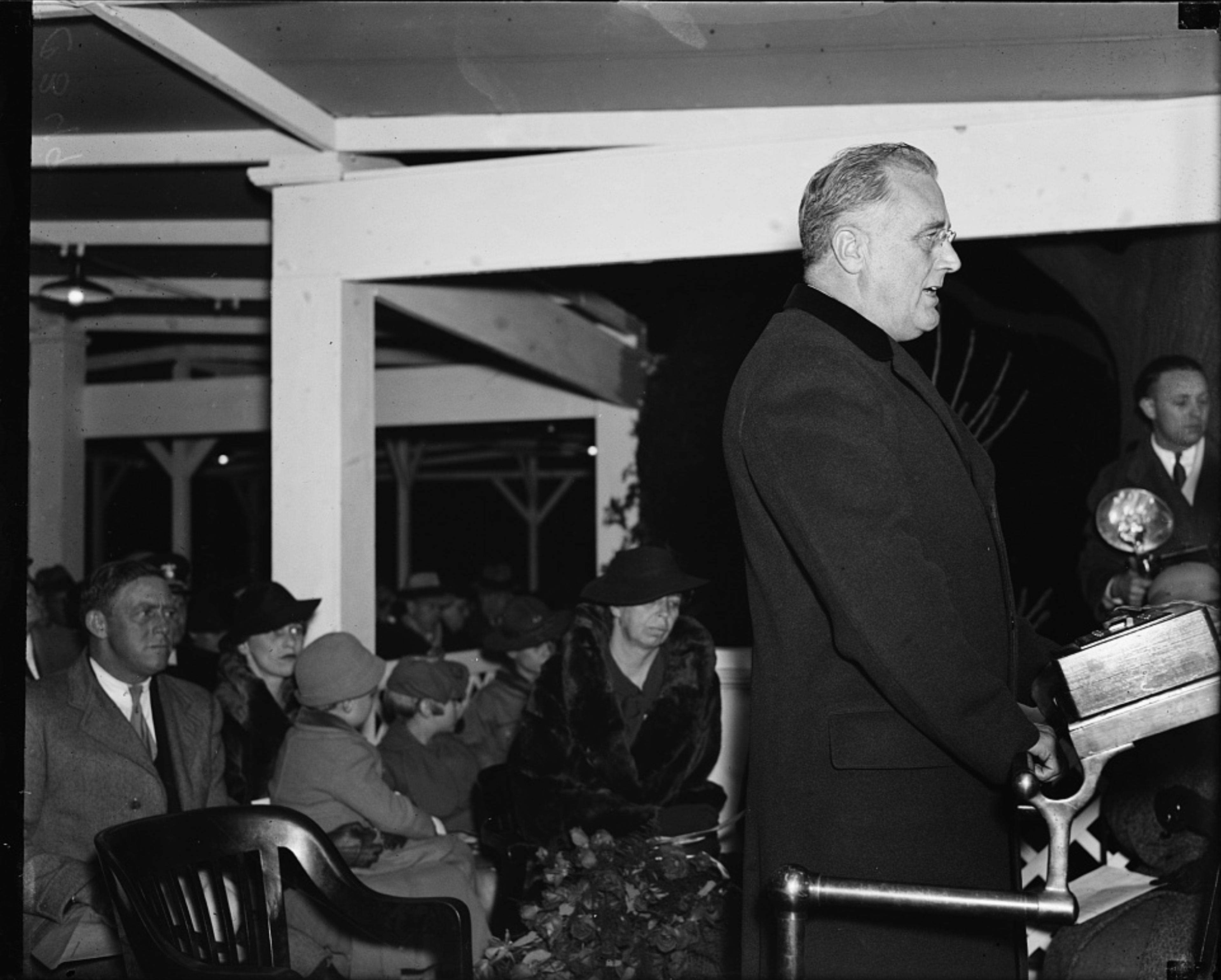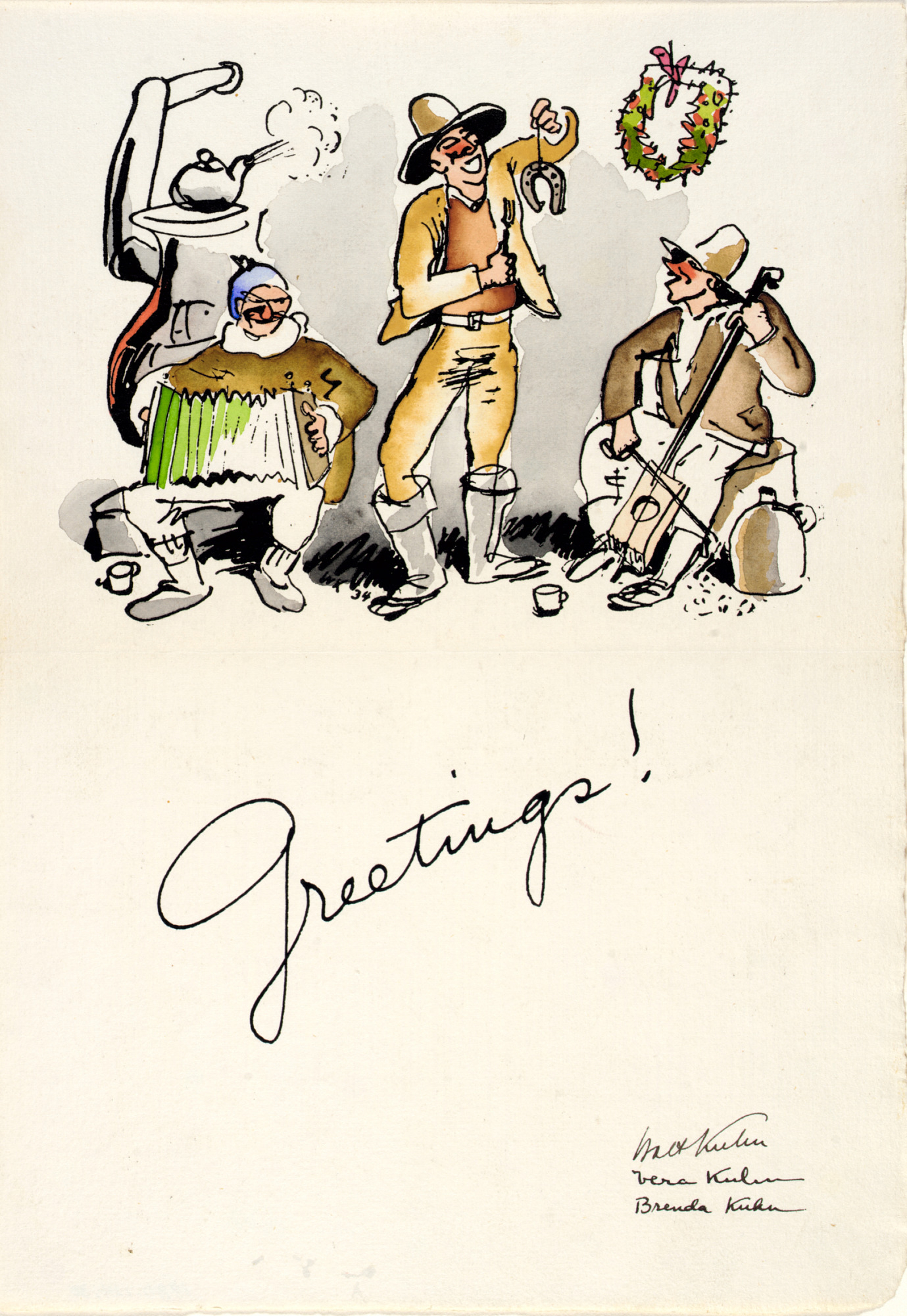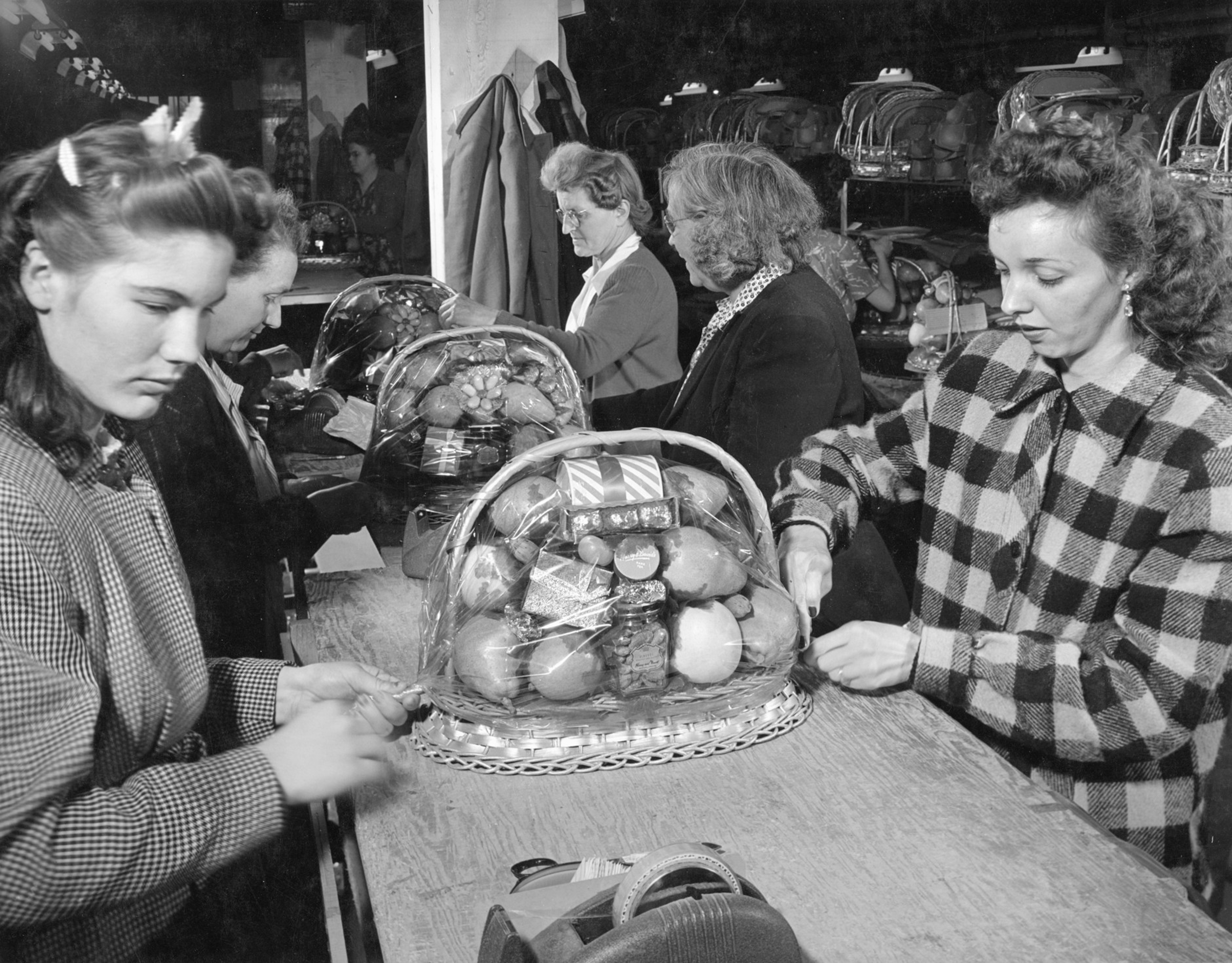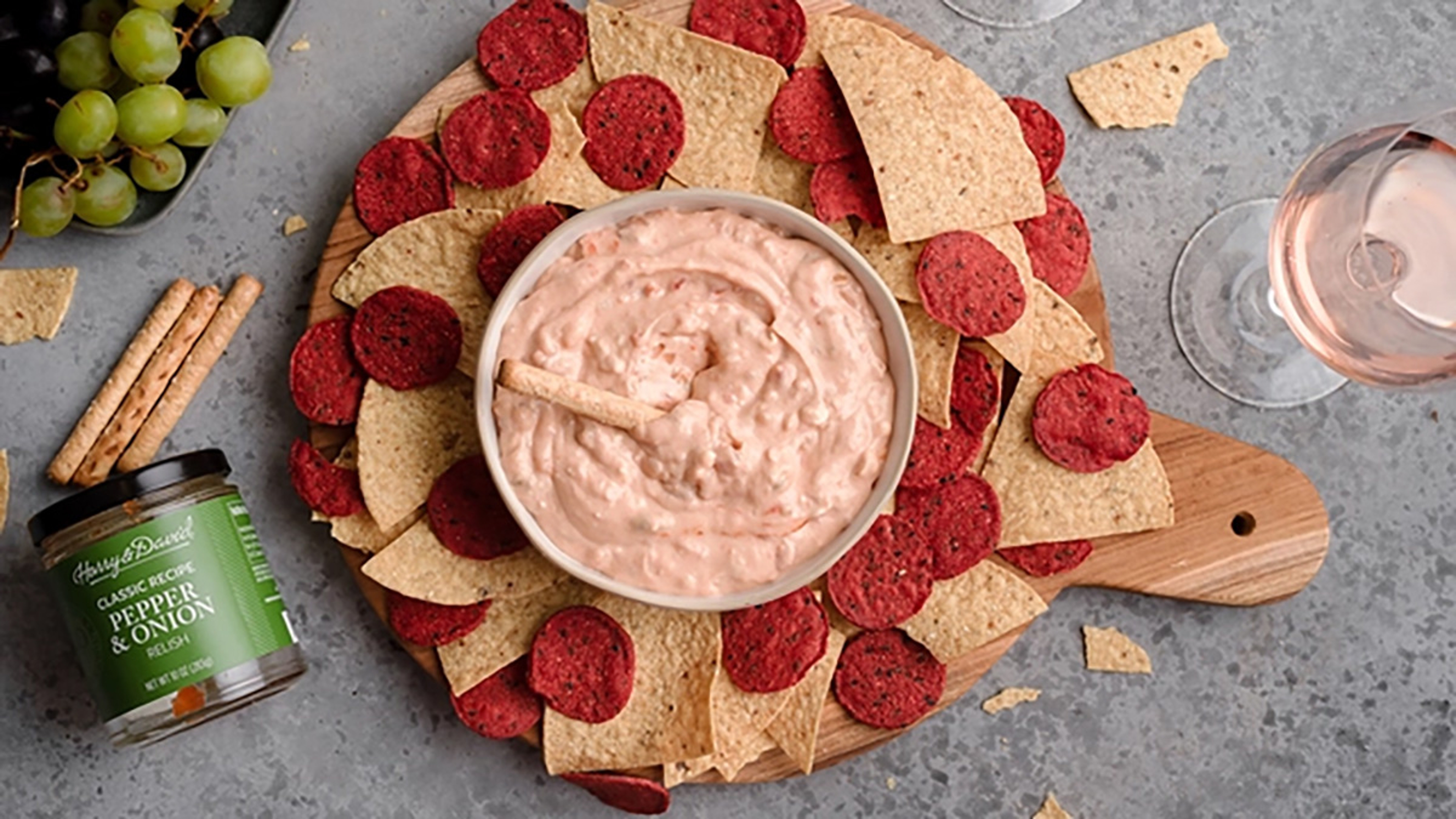What Was Christmas Like in 1934, the Year Harry & David Was Founded?
Two brothers started shipping luxury pears for the holidays amid the Great Depression. What could go wrong?
Nov 21, 2024
“Hard times create strong men,” novelist G. Michael Hopf famously proclaimed, and that’s undeniably true of the aptly titled “Greatest Generation.” Even before they shouldered the burden of saving humanity from itself in World War II, these courageous Americans came of age enduring the worst financial crisis in our nation’s history.
The stock market crash of 1929 set off a decade-long ripple of financial ruin, an economic apocalypse that resulted in the loss of 90% of its valuation. Businesses failed at an alarming rate, with as many as 300,000 having closed their doors for good in just the first few years. By 1934, the U.S. unemployment rate hovered around 21%, which didn’t even account for Midwestern farmers that were forced to abandon generational property due to unrelenting drought and dust storms. Countless other Americans were underemployed or homeless, as soup kitchens operating around the clock and bread lines stretching for city blocks became daily realities.
Banks shuttered, taking with them their customers’ life savings, or remained open but unsteady, forced to foreclose on homeowners who couldn't make their mortgage payments. It’s no surprise that shantytowns sprang up almost overnight — or that people took to idolizing notorious bank robbers like John Dillinger and Bonnie and Clyde alongside true heroes like Babe Ruth and Charles Lindbergh.
“The feeling of desperation was acute for people,” says professor Brad Austin, history department chairperson at Salem State University. “Communities and religious groups were forced to support each other because local infrastructures didn’t exist. There were cities that would spend their entire budgets on poor relief by the end of January. These were desperate times.”
Risky business
Against this bleak backdrop, when the concept of luxury was nearly unthinkable, two ambitious brothers from Medford, Oregon — produce farmers Harry and David Holmes — took an extraordinary risk. They launched a high-end mail-order fruit business that not only succeeded against impossible odds but also established the entire modern gift industry.
It was an outlandish gamble: offering premium fruit to a nation already brimming with street corner apple peddlers. Six thousand were once counted in a single day in New York City. Imagine, too, the audacity of launching such a seemingly out of sync business during the Christmas season, when simply “making do” was all most people could manage.

It’s a not-so-wonderful life
Christmas in 1934 was nothing short of grim, even if Shirley Temple was singing and dancing her heart out to lift America’s spirit, and even if President Franklin D. Roosevelt was promising his New Deal programs would bring much needed relief, recovery, and reform.
The profound lack of income, let alone of the discretionary kind, had an equally profound impact on the simple joy of a Christmas tree, which was generally out of reach for anyone who didn’t live in the country. Like a lot of things, decorations were handcrafted, mostly from paper scraps and other scavenged items. What passed for lavish Christmas feasts were single-course meals of potato and cabbage soup, macaroni and cheese, vegetable and bean chili, creamed chicken on bread or biscuits, or spaghetti with boiled carrots.
Where gift giving was possible, the focus was squarely on practicality: life-sustaining homemade breads, jams, preserves, and fruitcakes, as well as warming hand-knit scarves, gloves, and hats.
READ MORE: How Harry & David Makes Its Fruitcake
And then along came Harry and David, determined to defy the odds.

A very fruitful business
Armed with their family’s prized Royal Riviera® Pears — a French Comice variety so succulent it was dubbed “butter on a knife” — they set their sights on the ultimate niche clientele: the nation’s dwindling wealthy. These were mostly corporate bigwigs still intent on impressing clients with a touch of extravagance, especially during the holidays when people craved a sense of normalcy. In fact, Harry and David capitalized on this sentiment by cleverly promoting their decadent delicacies as elegant, thoughtful, and very practical.
READ MORE: Holiday Gift Ideas for Employees & Co-Workers
Their very first mail-order catalog hit doorsteps precisely 90 years ago on October 1, 1934 — just in time for Christmas. It was a sight to behold, a perfectly curated experience of indulgence built around those signature pears. A six-pound box sold for the not-so-manageable sum of $2.95 (about $69 in today’s dollars). It also offered tempting “nuts from everywhere,” honey butter priced at a lofty $1.65 a jar (about $38 in today’s dollars), and assortments of specialty cheeses.
It was a catalog business after all, and the brothers’ innovative logistics and packaging methods ensured their pears arrived on time and in perfect condition. Swaddled in elegant tissue paper and nestled inside protective wooden crates, these pears from Harry & David convincingly pledged, “I care.”

Resilience pays off
Today, Harry and David’s improbable success story serves as a reminder that even in the darkest of times, opportunities arise for those with vision and courage. The brothers were at once a product of their time and ahead of it — their enterprising spirit a lesson in Depression-era resilience and gritty determination.
“It was a remarkable time of resilience,” Austin emphasizes. “The American people faced a global depression but chose optimism and attempted to create a more humane industrial capitalism when other countries were going in different directions. Roosevelt and Hitler came to power at nearly the exact same time but with very different outcomes.”
In their own small corner of the world in Southern Oregon, brothers Harry and David fully understood they weren’t just selling pears, they were selling optimism. A Harry & David crate represented more than just a thoughtful gift. It was a moment of defiant reprieve — an affirmation that life goes on, hope springs eternal, and anything is possible in America.
Harry & David’s most iconic Christmas gifts
Harry & David’s oldest and most iconic Christmas gifts remain a significant part of American holiday traditions, celebrated as much for their premium quality as they are for their uniquely impressive presentations. Here’s a detailed look at their most timeless Christmas offerings. Each a bestseller!
Royal Riviera® Pears
Royal Riviera® Pears
Shop : The Favorite® Royal Riviera® Pears from Harry & David
Harry and David’s signature product debuted in the early 1930s and was popularized in the 1934 catalog at the height of the Great Depression. Derived from French Comice pears and nurtured in the temperate climate of Oregon’s Rogue Valley, the handpicked, uncommonly sweet and juicy pears were originally marketed as “so big you can eat them with a spoon.”
Shop : The Favorite® Royal Riviera® Pears from Harry & David
Fruit-of-the-Month Club®
Fruit-of-the-Month Club®
Harry & David introduced the innovative Fruit-of-the-Month Club® in 1936. Their novel subscriptions, which offered a different type of fruit each month, were originally priced at around $12.95 for the year, equivalent to about $270 today. Naturally, it featured their famous Royal Riviera® Pears, as well as gourmet apples, cherries, and peaches. The service is especially popular at Christmas and continues to influence imitators who have adopted the method for everything from wine and cheese to cigars, watches, sneakers, and even designer outfits and accessories.
Tower of Treats®
Tower of Treats®
Shop : Tower of Treats® Signature Holiday Gift from Harry & David
There’s no mistaking why this item remains one of the brand’s most iconic and bestselling holiday offerings. What’s more enticing than an entire tower of stacked treats? Well, one that contains gourmet chocolates, nuts, dried fruits, and even the company’s signature Royal Riviera® Pears. First offered in 1945 and priced at $5, the equivalent of approximately $80 today, the colorful and artfully wrapped Tower of Treats further defined Harry & David’s reputation for offering impressive holiday gifts.
Shop : Tower of Treats® Signature Holiday Gift from Harry & David
Fruitcake
Fruitcake
Shop : Grand Traditional Fruitcake from Harry & David
While fruitcake is an ancient tradition that dates to the Romans, the brothers’ unique version became an instant bestseller thanks to its richly soaked dried fruits and nuts and its light, moist texture. It’s simply world’s away from the far too sweet and dense commercial versions and has proudly undone the old stigma that fruitcake is a gift best suited to regifting. The product, which was first offered in 1947 and presented in a reusable decorative tin, sold for around $3.50, or about $78 in today’s dollars.
Shop : Grand Traditional Fruitcake from Harry & David
Chocolate Truffles
Chocolate Truffles
Shop : Signature Chocolate Truffles from Harry & David
Harry & David’s chocolate truffles first began enticing buyers in the 1970s. Since chocolate has been popular for centuries and routinely ranks as a top three favorite food worldwide, truffles weren’t exactly the company’s biggest challenge. But Harry & David have always been about elevating simple, natural ingredients — in this case, to the level of divine luxury. Made with the finest chocolate and filled with rich, creamy, decadent ganache, it’s no wonder they’re a bestseller.
Shop : Signature Chocolate Truffles from Harry & David
Baklava
Baklava
Shop : Signature Baklava from Harry & David
In 1978, Harry & David wisely added a touch of the Mediterranean to their offerings in the form of baklava, and it’s been going strong ever since. With its 60 layers of flaky pastry and a filling of honey and finely chopped nuts that’s baked to a perfect golden brown, Harry & David’s baklava remains a popular alternative to run-of-the-mill holiday cookies — especially for customers seeking a taste of the exotic.
Shop : Signature Baklava from Harry & David
Pepper & Onion Relish
Pepper & Onion Relish
Shop : Pepper & Onion Relish from Harry & David
This popular relish is as much beloved for its full flavor — a blend of sweet peppers, tomatoes, and onions with just a bit of spice — as it is for its versatility. Spreading the savory condiment on crackers is just a first step. It’s used more daringly as a dip, glaze, or spread to brighten boring sandwiches — and even as a not-so-secret burger sauce. In fact, its versatility helped popularize the now decades-long gourmet condiment craze. The company has paired the much-coveted jars with cheese and gourmet crackers and even slipped them into their impeccably curated gift baskets.
Shop : Pepper & Onion Relish from Harry & David
.svg?q=70&width=384&auto=webp)













